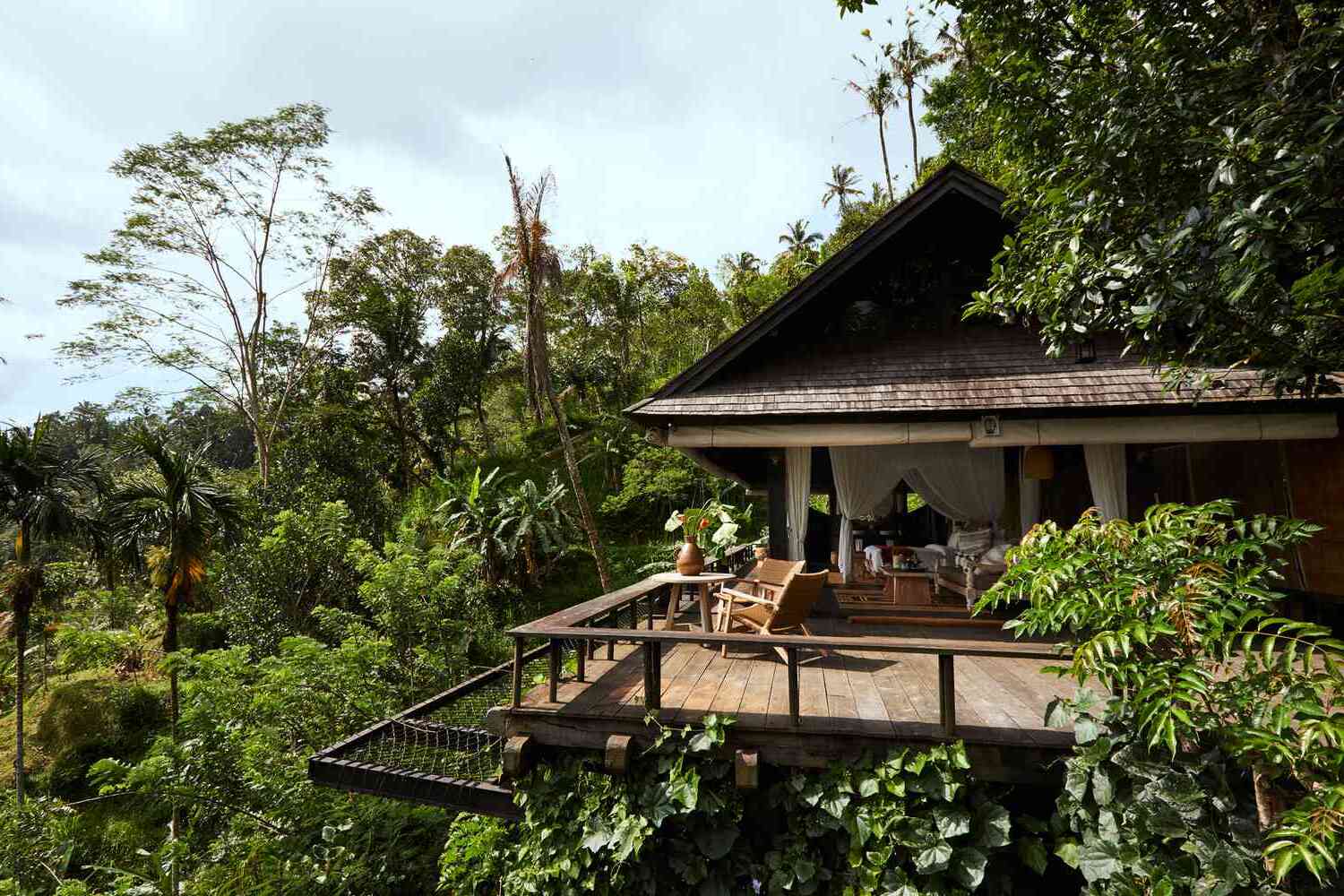
Bali, often called the "Island of Gods," is a mesmerizing destination in the Indonesian archipelago. Known for its stunning landscapes, rich cultural heritage, and vibrant tourism, Bali offers a unique blend of natural beauty and spiritual depth. Did you know Bali is home to over 4.3 million people and covers an area slightly smaller than Delaware? The island's economy thrives on tourism, drawing millions of visitors annually. From its active volcanoes to its intricate art forms, Bali captivates with its diverse attractions. However, the island also faces challenges like environmental concerns and over-tourism. Let's explore 50 intriguing facts about this enchanting island.
Key Takeaways:
- Bali's unique location and geography, marked by the Wallace Line, create a biodiversity hotspot with a blend of Asian and Australian fauna, making it a gem in the Indonesian archipelago.
- Bali's rich culture, volcanic landscape, and heavy reliance on tourism make it a fascinating and environmentally challenged destination, with unique traditions and historical significance.
Location and Geography
Bali, often called the "Island of Gods," is a gem in the Indonesian archipelago. Its unique location and geography contribute to its allure.
- Bali is part of the Indonesian archipelago, which includes over 18,000 islands.
- The island is situated east of Java and west of Lombok, with the Wallace Line running through the 35-km (22-mi) strait between Bali and Lombok.
- This Wallace Line marks the boundary between Asian and Australian fauna, making Bali a unique spot for biodiversity.
Size and Population
Despite its small size, Bali is densely populated and culturally rich.
- Bali covers an area of approximately 2,232 square miles (5,780 km²), making it slightly smaller than Delaware.
- The island has a population of about 4.3 million people.
- Denpasar is the capital and largest city, bustling with activity and culture.
Provincial Status
Bali isn't just an island; it's also a province with its own unique administrative structure.
- The province includes the main island of Bali and three smaller islands: Nusa Penida, Nusa Lembongan, and Nusa Ceningan.
- The name "Bali" originated from the Sanskrit word "balin," meaning "hero" or "strongman."
Cultural Significance
Bali's culture is a fascinating blend of various influences, creating a unique tapestry of traditions and beliefs.
- Bali is known for its unique blend of Hinduism, Buddhism, and indigenous beliefs.
- The island is home to a complex caste system, with lighter versions of the Indian caste system prevalent among the Balinese.
- The main religion in Bali is Agama Hindu Dharma, a blend of Hinduism, Buddhism, and local beliefs.
Volcanic Landscape
Bali's landscape is dominated by its majestic volcanoes, which have shaped the island's geography and culture.
- Bali is home to several active volcanoes, including Mount Agung, which stands at 3,031 meters (9,944 ft).
- Mount Batur and Mount Bratan are also active volcanoes, with Mount Batur featuring a large lake in its crater and four villages on its rim.
Economic Dependence on Tourism
Tourism is the lifeblood of Bali's economy, drawing millions of visitors each year.
- Tourism makes up approximately 80% of Bali's economy.
- In 2019, 6.3 million tourists visited Bali, more than the island's entire population.
- Australians and Chinese tourists are among the top visitors.
UNESCO World Heritage Site
Bali's cultural and natural heritage is recognized globally.
- Bali is home to one UNESCO World Heritage Site: the Cultural Landscape of Bali Province: the Subak System as a Manifestation of the Tri Hita Karana Philosophy.
- This site includes rice terraces and temple systems used for irrigation management.
Unique Art Forms
Bali is a hub of artistic expression, with unique art forms that reflect its rich cultural heritage.
- Bali is renowned for its unique art forms, including painting, sculpture, woodcarving, poetry, handcrafts, dance, and various performing arts.
- The island's artistic richness is a reflection of its cultural heritage.
Traditional Clothing
Traditional clothing in Bali is more than just attire; it's a symbol of cultural identity.
- In Bali, there is a law (or at least a tradition) to wear traditional clothing on Thursdays.
- This decree was made by a former governor to conserve the island's culture, although in practice, people often wear what they want.
Historical Significance
Bali's history is rich and ancient, with evidence of human culture dating back thousands of years.
- The oldest evidence of human culture on Bali dates back to 202,000 years, with stone tools found in Trunyan Village.
- The first recorded reference to Bali as "Bali" was in the year 914 A.D.
Barack Obama's Connection
Even former U.S. President Barack Obama has a connection to Bali.
- In 1993, Barack Obama spent a month on Bali's east coast, writing the first draft of his book "Dreams from My Father" in Sanur.
Environmental Concerns
Bali's booming tourism industry has led to significant environmental challenges.
- The island's reliance on tourism has led to significant environmental concerns.
- Water is in short supply, heavily used land is eroding, and there is no effective way to dispose of all the trash generated by tourists.
Government Initiatives
Efforts are being made to manage tourism and its impact on Bali.
- To ease the strain on Bali and spread tourism wealth, the Indonesian government launched a campaign to develop new tourist destinations on five other islands: Flores, Java, Lombok, Sulawesi, and Sumatra.
- These initiatives have not yet drawn significant numbers away from the original Bali.
Unique Umbrellas
Colorful umbrellas in Bali are more than just decorative items; they hold cultural significance.
- Locals in Bali use colorful umbrellas called "tedung," which means "defense."
- These umbrellas protect from the sun and are associated with the main Hindu gods: red for Brahma, green and black for Vishnu, white for Shiva, and yellow for Sang Yang Vidi Vasa.
Sea Temples
Bali's sea temples are not only architectural marvels but also spiritual guardians.
- Bali's sea temples, such as Pura Luhur Uluwatu and Pura Tanah Lot, form a defensive chain along the coast.
- These temples are believed to protect the island from evil forces.
Tooth Rasping Ceremony
A unique rite of passage in Bali involves a tooth rasping ceremony.
- Young people in Bali undergo a tooth rasping ceremony between 16-18 years old or at their wedding.
- This practice is believed to help individuals overcome demonic traits and the six main sins: anger, greed, gloom, lust, pride, and drinking.
Historical Extinctions
Bali's wildlife has seen significant changes over the years.
- Bali once had leopards and tigers, but both species went extinct in the early 20th century.
- The last Bali tiger was lost to the world in the 1950s.
Metro Project
Efforts to improve Bali's transportation system include a metro project.
- A metro project was planned to improve public transportation in Bali, but it was supposed to appear in 2022.
- This project aims to address the island's transportation issues.
Traditional Practices
Traditional practices in Bali are deeply rooted in the island's culture.
- In Bali, home temples are almost a norm.
- Every household has a temple where people can communicate with representatives of the invisible world.
Polygamy Culture
Polygamy is a part of Bali's cultural fabric, particularly among the upper caste.
- Bali has a culture of polygamy, particularly among the upper caste.
- Families are allowed to have up to four wives if the first wife gives written consent.
- Without this consent, the husband can face legal consequences.
Rainy Season
Bali's climate includes a distinct rainy season.
- Bali experiences a rainy season from October to April.
- Despite the rain, the island still receives an average of 8 hours of sunshine per day during this period.
Wallace Line
The Wallace Line is a significant geographical boundary that runs through Bali.
- The Wallace Line runs through the strait between Bali and Lombok.
- This line marks the boundary between Asian and Australian fauna.
Time Zone
Bali's time zone places it in a unique position relative to other major cities.
- Bali is located in the Southern Hemisphere, behind the Equator, in the UTC/GMT +8 time zone.
- When it's 12 pm in Bali, it's 11 pm in New York, 4 am in London, 7 am in Moscow, 1 pm in Tokyo, and 3 pm in Sydney.
Bali: A Blend of Culture and Nature
Bali, often called the "Island of Gods," offers a unique mix of cultural richness and natural beauty. From its ancient temples and traditional dances to its stunning beaches and active volcanoes, the island has something for everyone. The Subak System, a UNESCO World Heritage Site, showcases Bali's innovative approach to agriculture. Despite facing challenges like over-tourism and environmental concerns, the island continues to thrive, thanks to its vibrant community and government initiatives. Whether you're interested in surfing, yoga retreats, or exploring historical landmarks, Bali provides an unforgettable experience. However, sustainable practices are crucial to preserving this paradise for future generations. So, next time you plan a trip, consider Bali—a place where tradition meets modernity in the most enchanting way.
Frequently Asked Questions
Was this page helpful?
Our commitment to delivering trustworthy and engaging content is at the heart of what we do. Each fact on our site is contributed by real users like you, bringing a wealth of diverse insights and information. To ensure the highest standards of accuracy and reliability, our dedicated editors meticulously review each submission. This process guarantees that the facts we share are not only fascinating but also credible. Trust in our commitment to quality and authenticity as you explore and learn with us.


